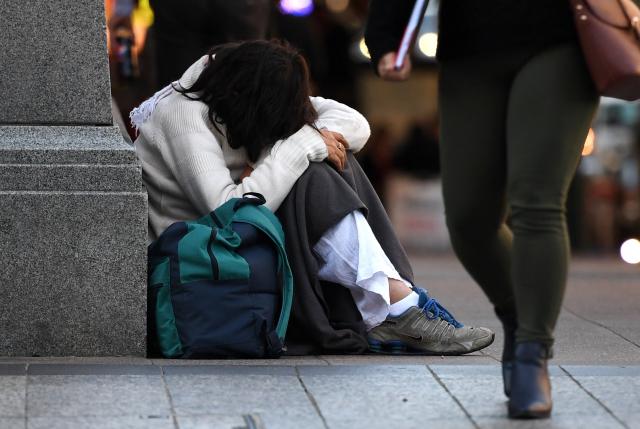
By Mikayla van Loon
As more people are pushed to the brink of homelessness, a funding shortfall in the sector is not ideal yet this is the reality services are facing.
Lilydale based homelessness service Anchor has joined alongside over 200 organisations to sign an open letter to the Federal government to insist on a $65 million funding commitment to be renewed come the end of June.
The federal funding has supported the Equal Remuneration Order (ERO) since 2012 to ensure support workers received fair pay rises over those years.
It is estimated that without the funding up to 650 workers could lose their jobs within the sector, adding pressure to the already overrun network of homelessness organisations.
Anchor CEO Heidi Tucker said for some agencies it will mean making tough decisions they don’t want to make, nor can afford to make with the ongoing crises of housing shortages and cost of living.
“For us, for Anchor, we wouldn’t be able to do the extras, there’d be no way. The reality is when you see someone coming through the door who doesn’t have a home, they also have a lot of other issues,” she said.
“We’re not going to have time because we’re not going to have the resources to spend the time we do now, because it’s a lot more than what’s written on paper finding someone a home, there’s a lot else that we do.”
From potential office hour cuts to reducing staff hours, Ms Tucker said these are all potential implications of losing the funding.
“For people to think this is a good time to cut services when people come in for all sorts of reasons, they might come because they’re behind on their rent and we’ll get them some rental assistance,” she said.
“To actually knock that out now seems ridiculous. It just seems really shortsighted.”
While Anchor provides a lot of support in transitional housing and emergency accommodation, Ms Tucker said it’s also the advice side of things that may be in jeopardy.
“Quite a bit of our traffic, if you like, is people gathering information. So to think that every person who is without a home or at risk of not having a home is often ringing saying, ‘what do I do about this?’
“We’re going to be struggling to do that and so you’re going to see no prevention work. It’s just going to be at the pointy end.”
Already with low rental numbers and the high cost of rentals, Ms Tucker said anecdotally it has become apparent across the sector that more people are living in their cars.
“Across the state more people are sleeping rough, more people are sleeping in their cars and vans, a lot of people have bought vans to live in.
“It’s always hard in the Yarra Ranges to know exactly the numbers, because there are a lot of places where people can camp out or park that people don’t see.”
Ms Tucker said there has also been an increase in the number of women and children seeking help after fleeing a violent situation.
“In 2020-21 services were unable to assist 288 people per day, of whom two thirds were women and children, many fleeing domestic and family violence,” the open letter states.
Unfortunately too, more single men and women are approaching services and Ms Tucker said as hard as it is to turn them away or to a boarding house, there’s no funding for single people.
“We already can’t do that. So you push us that bit further and we’re going to be triaging the family. Who can we help? And who can we not?”
Ms Tucker said for homelessness services it feels as though they have been caught up in the middle of a political debate when all they are trying to do is support people.
“$65 million for the Federal government is not a lot but unfortunately for Victoria in the way funding is structured, that means we have half of that.
“It’s over $30 million ‘belongs’, if you like, to Victoria. So we’re particularly hard hit, you’ll see that other states, percentage wise, don’t have the hit.”
The ERO was originally agreed upon by the State and Federal governments as a joint partnership to provide equal wages for community services workers to align them with teachers, police and nurses.
Primarily a female dominated field, Ms Tucker said not only are people on the brink of homelessness going to potentially suffer but the workers themselves will too.
“In the general population, there’s a lot of female-headed households, single women raising children, the same percentage would be across our sector.
“Many women work in the particular job they’re in because of their childcare responsibilities. Women try to work conveniently, relatively close to home, closer to kids schools, childcare.
“If they lose that job, they then have got not just the income issue, they’ve got the location or geographic issue, which is going to be key for them and it will disrupt their lives.”
Signing the letter, Ms Tucker said, was about showing power in numbers but also to stand with her staff and acknowledge their role and importance in the sector.
Understanding that the government has a number of sectors calling for funding, Ms Tucker said however, homelessness services aren’t asking for much, no more than they have already been receiving.
“Governments are under enormous amounts of pressure with social issues. We can talk about how homelessness but aged care, disability, mental health, there’s so many pressures on governments.
“I get that but our sector isn’t worth a lot. We deliver an enormous amount for pretty slim funding compared to other sectors.”







